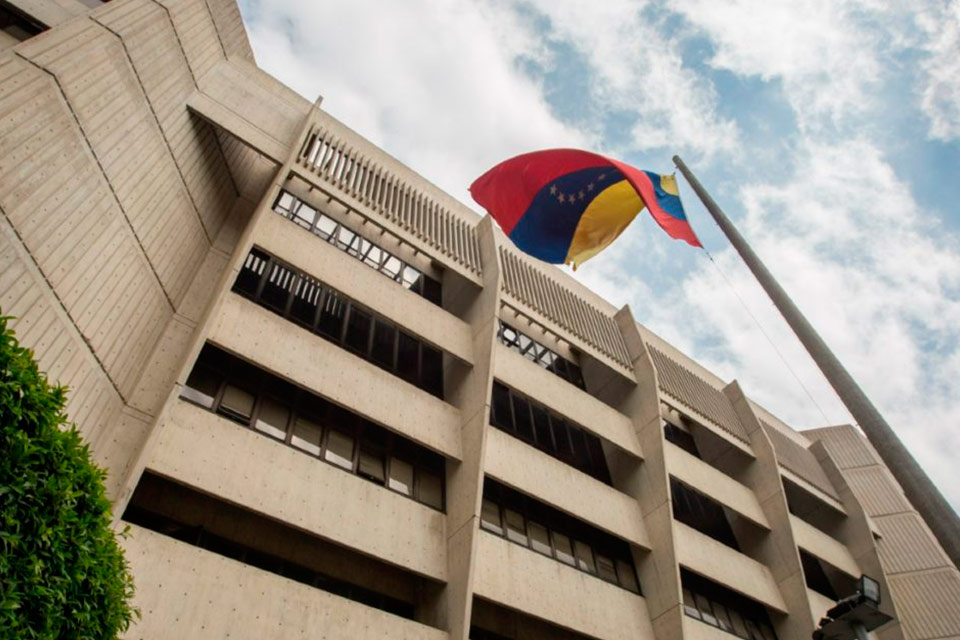The Commission of Experts on Social Security (CESS) warned about the weaknesses of the Bank Retirement and Pension Fund (CJPB) when he presented his report with recommendations for a comprehensive reform of the Uruguayan pension system to the Executive Power in November 2021.
This Monday, rudolph Saldainsocial security expert linked to the government of Luis Lacalle Pou –and which was the visible face of the discussion led by the CEES for a comprehensive reform of the pension system in Uruguay– warned that the CJPB is in a situation engaged and what do I know would run out of funding within four to five years. From the Uruguayan Banking Association (AEBU) They responded that the operating results of the box are within schedule and ensured its viability.
Saldain wrote on his Twitter account that “the 2008 bailout” for the Caja Bancaria “has run out.” The social security expert He attached a photo of the balance sheets of the Caja Bancaria.
However, from the official AEBU Twitter account, they responded to Saldain indicating that the 2008 reform “is not sold out” as “goes through a planned stage” and has “long-term projections that ensure its viability”.
CJPB news
The CJPB’s spending on retirement and pensions in 2021 was $21,915 million (US$503 million at the average dollar for the year). In turn, the deficit accumulated reached $2,952 million (US$68 million) in 2021 Y it had been $2.015 million ($48 million) in 2020. CJPB sources explained to Search that the coverage of this imbalance implies a decapitalization of more than US$ 50 million per year.
In turn, one technical consulting requested by the Ministry of Economy and Finance (MEF) to an executive of the Inter-American Development Bank (IDB) threw that the CJPB’s financial fund would exhaust its reserves in 2024, while the forestry fund – which has that parastatal box – would reach until between 2026 and 2027.
The CJPB it was reformed in 2008 during the first administration of the Broad Front. In that instance, it was anticipated three later stages. The The first would have a series of successive years with operating surpluses and reserve accumulation. In the second stage –the one that the institution is currently experiencing– were expected operating deficits, use of accumulated reserves and a significant amount of new retirements. The third stagescheduled for the next decade, it would imply a return to operating surpluses and reserve accumulation.
The current issue is that, according to authorities, additional financing will be required to meet certain transitional needs during that period of operating shortfalls. On the other hand, it is understood that the CJPB reserves would be exhausted before reaching the third phase, approximately in 2035.
Evaluation and recommendations of the CESS for the Caja Bancaria
in the report Recommendations for the reform of the Uruguayan pension system presented by the CESS to the Executive Power on November 12, 2021points out the aspects that, in the understanding of the experts, they are key to reform within the CJPB.
Of the 15 members of the CESS plenary, 10 voted in favor of the report and five voted against it. they were in favor the nine representatives of the ruling party and Elvira Domínguez, delegated by business chambers. They voted against Jose Luis Baumgartner, Ernesto Murro and Jimena Pardorepresentatives of the Front Large; Hugo Bai, PIT-CNT delegate Y Gabriel Given, representative of the National Organization of Retirees and Pensioners (Onajpu).
In the case of the CJPB –and also the Retirement and Pension Fund for University Professionals (Cjppu)– it is noted that both present persistent imbalances and equity and efficiency problems.
The Cjppu already facing a serious financial crisis and both the government and its authorities seek to promote a reform that makes its continuity viable.
In the case of problems of equitythe report indicates that it is because they are used to finance the benefits of groups with medium or above-average incomes, resources that fall on the entire society, via higher costs of the corresponding services (financial, health, etc.).
Diego Battiste
Experts noted the so-called Complementary Employer Benefit (PCP) which was incorporated with the 2008 reform of the CJPB. In this sense, the report explains that a part of this tax downward impact on retirement benefits (annuities) of those affiliated to the mixed regime“either because of its direct impact on the premiums of the collective disability and death insurance in activity that are deducted from the monthly contribution of the members of the mixed regime, or because of integrating the balances of the accounts transferred to the State Insurance Bank (BSE) by those affiliated to the mixed regime upon retiring”.
On the other hand, with regard to problems of efficiencythis lies in the fact that the PCP increases the costs of a sector whose services are provided to the entire economy, with the consequent general effect. The PCP, which benefits the Caja Bancaria, represented 21.7% of its income in 2019 and its incidence is expected to grow until it stabilizes at around 35%, according to experts.
According to the report, based on the persistently negative operating results of the banking pension scheme, there is no possibility of suppressing it in the short term. However, some of the scope of the PCPs deserve to be reviewed “Without delay as soon as they tax the premiums of pension insurance and work accidents”. “There is no perceived basis for these instruments of the social protection system to be the subject of this tax for Caja Bancaria.”, questions the document.
Based on these arguments, the CESS recommended, in the first instance, avoid the creation or increase of taxable matters outside the affiliates to finance special social security regimes. Secondly, exclude social security premiums and work accident premiums from the matter taxed by the PCP.
From AEBU they criticized the reform proposals of the CESS for the CJPB. In his opinion, “triple the deficit and advance it three years“, hence “they are not a solution, nor do they generate any benefit for the institution or its affiliates”.







